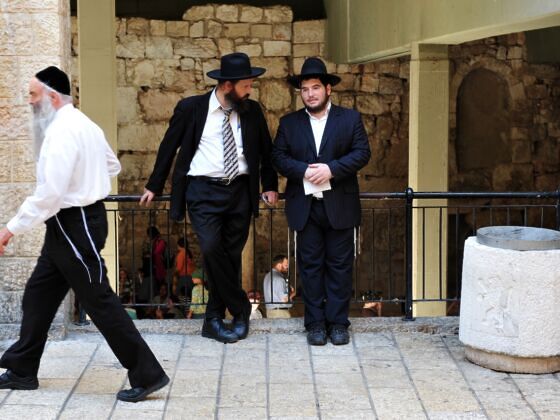I ENTER Chaim’s living room thinking this can’t be. The old Hasid in his long black coat has invited over a friend for Torah study and a toke. Chaim extends his roach to me. I refuse. Seems too much like a bribe. If I take it, I will feel obligated to study with him.


Maybe I should. To get high and delve into Jewish holy books in Jerusalem may be the antidote to my childhood memories of being entombed in a dusty yeshiva classroom while spring rubbed its green head against the window.
I see Chaim, once a San Francisco lawyer for Rolling Stone Magazine, as a branch cut off from his worldly tree and self-smuggled into the arbor of God.
My own life, by comparison, seems so straightjacketed. I wanted to be a writer when I was sixteen, and I still want to be one. Maybe if I’d aired out my mind in Chaim’s snow globe of drugs (“I was part of the amphetamine crowd.”), I too would be able to leap back across time into an ancestral black coat and find that it fits.
Chaim makes a place for me on the couch between him and his friend, a younger, black-coated version of himself. I am caught in the crossfire of a learned debate about this Talmudic rabbi and that Talmudic rabbi.
I admire the ease with which the two men juggle tradition and behavioral heresy. It feels good to be among the delinquents of a Hasidic underground. “Robert,” Chaim says to his friend, “writes about Palestinian nonviolence.”
“I didn’t know there was such a thing,” the young man says. I say nothing. I want to write a psalm dedicated to a Hasid who abandons God for the weed but who can’t abandon the cliché tumored in his gut.